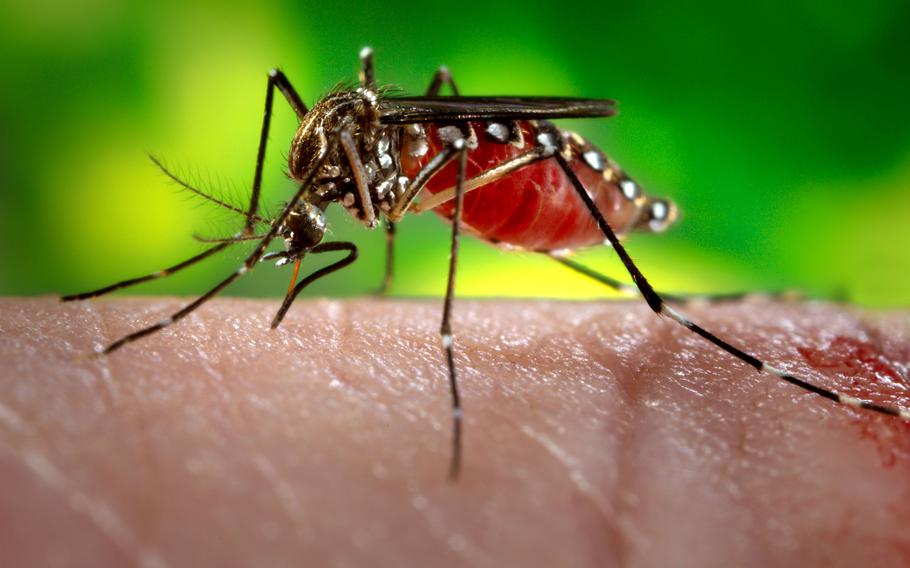In this 2010 photo, Navy Lt. Michael Fisher mosquito repellent at Camp Buehring in Kuwait. Now scientists at the University of Florida have developed a device for the military that can keep mosquitoes at bay for a month. (U.S. Navy)
American troops could be better protected from the ravages of mosquitoes thanks to some Gator help in the field.
Scientists at the University of Florida have developed a device for the military that can repel the insects for a whole month.
The device is a one-inch plastic tube that slowly releases transfluthrin, an insect repellent the Florida research team said is safe.
“It doesn’t stop with mosquitoes,” researcher Nagarajan Rajagopal said in a university statement last week. “We want to show that it works with other insects, especially ticks, which pose a threat by causing Lyme disease.”
The research was funded by a grant from the Pentagon’s Deployed Warfighter Protection program.
The military spends millions of dollars protecting troops from mosquito-borne diseases like malaria, dengue virus, Zika, and West Nile virus.
New and improved solutions are needed as the list of safe and inexpensive bug killers shrinks, according to a government website on the Deployed Warfighter Protection program.
Researchers at the University of Florida developed an insect repellent device for the US military. It contains a substance called transfluthrin and is hung at the entrance of a tent. (University of Florida)
The Florida research team wanted a device that wouldn’t spray pesticides over an open area, as spread poses a risk of contamination to surrounding plants or water bodies.
Over four weeks in 2021, they placed 70 tubes attached to fishing lines at the opening of a large military tent, according to a paper published in the January issue of Current Research in Parasitology and Vector-Borne Diseases.
Then they released mosquitoes around the tent and measured how many entered.
The transfluthrin is a “heavier-than-air molecule” that was slowly released from the devices to penetrate the tent, the study authors said.
It “created a protected space in which the number of mosquitoes was greatly reduced and minimized or eliminated,” the scientists wrote, adding that the few mosquitoes that made it into the tent could not fly and were therefore easily caught .
Future research will examine whether the product would protect a room from mosquitoes for up to three months, Rajagopal said in the University of Florida statement.
US Department of Agriculture scientists involved in the study believe the work can help military members and civilians alike.
The device “has potential for other uses, including hiking and fishing,” said Daniel Kline, a research entomologist at the agency, in the statement.

Scientists at the University of Florida have developed a device for the military that can be hung at the entrance of a tent and repel mosquitoes for a month. (U.S. Navy)









